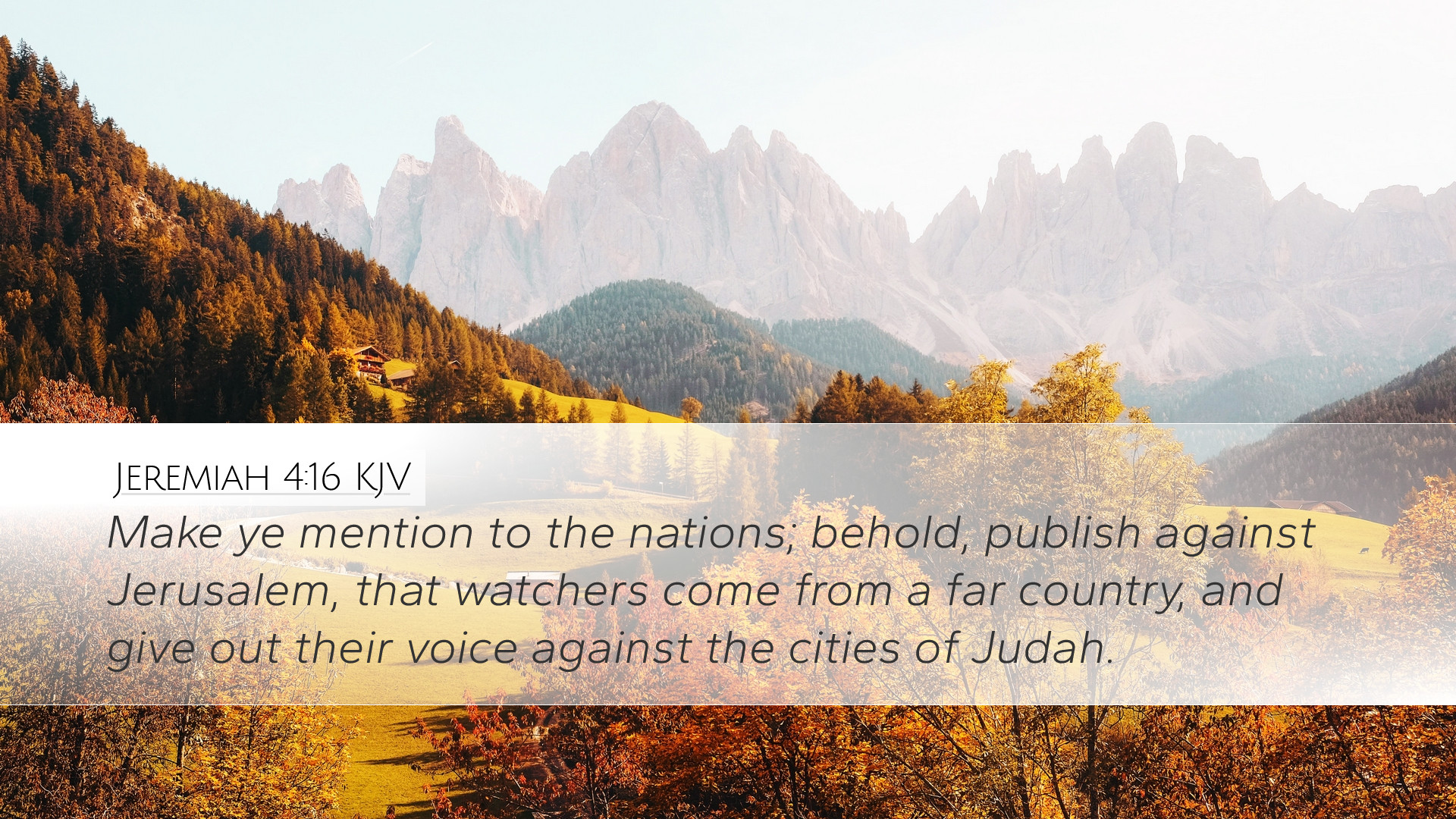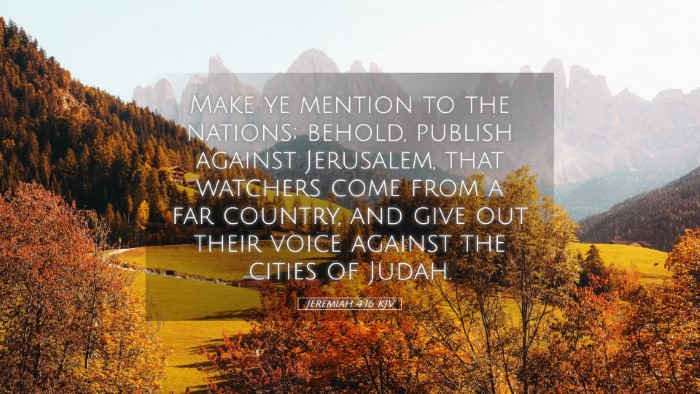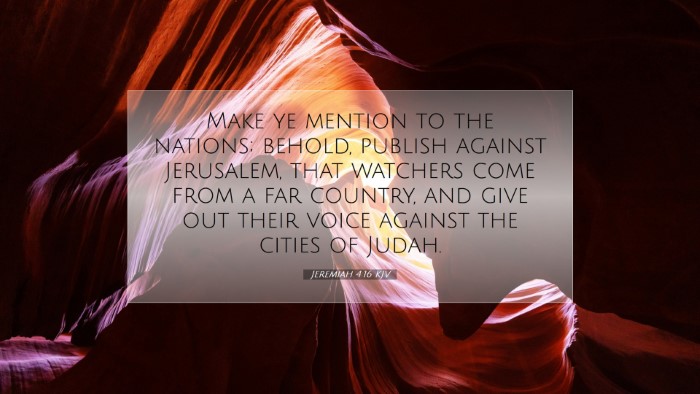Commentary on Jeremiah 4:16
In Jeremiah 4:16, we encounter a profound plea for attention directed towards the people of Judah during a time of impending judgment and turmoil. The verse states:
"Make ye mention to the nations; behold, publish against Jerusalem, that watchers come from a far country, and give out their voice against the cities of Judah."
This scripture reflects critical themes of warning, the prophetic voice, and the urgency of the message of God through His prophet Jeremiah.
Contextual Overview
The backdrop of Jeremiah's prophecies is essential for understanding the weight of the message in this verse. At the time of Jeremiah, Judah was surrounded by nations that posed a significant threat. The moral decay and spiritual apathy of the people were rampant, leading to divine judgment. Jeremiah’s role as a prophet was not only to announce destruction but also to call the people to repentance.
Insights from Public Domain Commentaries
Matthew Henry
Matthew Henry emphasizes the urgency in the prophetic announcement encapsulated in this verse. He suggests that God instructs the nations to be aware of the judgment coming upon Jerusalem. Henry interprets the watchers as heralds of disaster, possibly referring to the approaching Babylonian invaders. He notes that this message underscores God’s sovereignty and the consequences of the people's rebellion against divine instruction. He writes:
"Judgment is herein aimed at: watchers are sent to give warning; those that are sent to announce the news are the Watchers of the Lord, who see from afar and behold the transgressions of the people."
Albert Barnes
Albert Barnes offers a detailed analysis of the phrase "make ye mention to the nations." He posits that this call indicates God's desire to alert not only the Israelites but also the surrounding nations about the calamities intended for Jerusalem. In Barnes's view, this serves two functions: first, it illustrates the gravity of Judah’s sins, and second, it proclaims God’s reign over all nations, encouraging them to witness His justice and righteousness. He articulates:
"In calling upon the nations to take notice, there lies a profound warning of the impending judgment; it highlights a divine proclamation meant for all the world, emphasizing the universal reach of God's authority."
Adam Clarke
Adam Clarke provides a linguistic and historical examination of the term "watchers." He connects it to those appointed by God to oversee the judgment of corrupt nations. Clarke underscores the significance of this divine oversight as a reminder of God's omnipresence and justice. He notes that the call to the nations serves also as an indictment against Israel’s unfaithfulness:
"These watchers from a far country symbolize the impending judgment, alerting both the nations and Jerusalem to the horrid state of moral affairs; it signifies that divine judgment is inescapable and will affect those who stray from His path."
Theological Reflections
Jeremiah 4:16 serves as both a historical warning and a timeless reminder of the consequences of disobedience to God. The imagery of watchers conveys a sense of vigilance and impending action. Pastors and theologians can draw rich lessons from this verse:
- The Call to Awareness: The necessity for continual vigilance in both individual and corporate spiritual life.
- The Role of Prophecy: Emphasizing the responsibility of speaking truth in love regarding sin, judgment, and repentance.
- The Sovereignty of God: A theological affirmation that God governs nations and fulfills His purposes through various means.
Practical Applications
In light of the insights derived from Jeremiah 4:16, here are practical applications for today’s church:
- Engagement with Society: Like Jeremiah, believers are called to declare the truth of God’s word to a complacent culture.
- Awakening the Conscience: Church leaders must strive to awaken the church’s conscience to moral and ethical failures within society.
- Repentance and Restoration: A call to personal and communal repentance, focusing on returning to God’s ways to experience His restoration.
Conclusion
Jeremiah 4:16 encapsulates a pivotal moment in the prophetic narrative where warning, urgency, and hope converge. The watchers serve as a metaphor for God’s unyielding presence and commitment to justice. For pastors, students, theologians, and scholars, this verse is rich with implications: a call to observe, to engage, and to return to faithful living in light of divine expectation.


